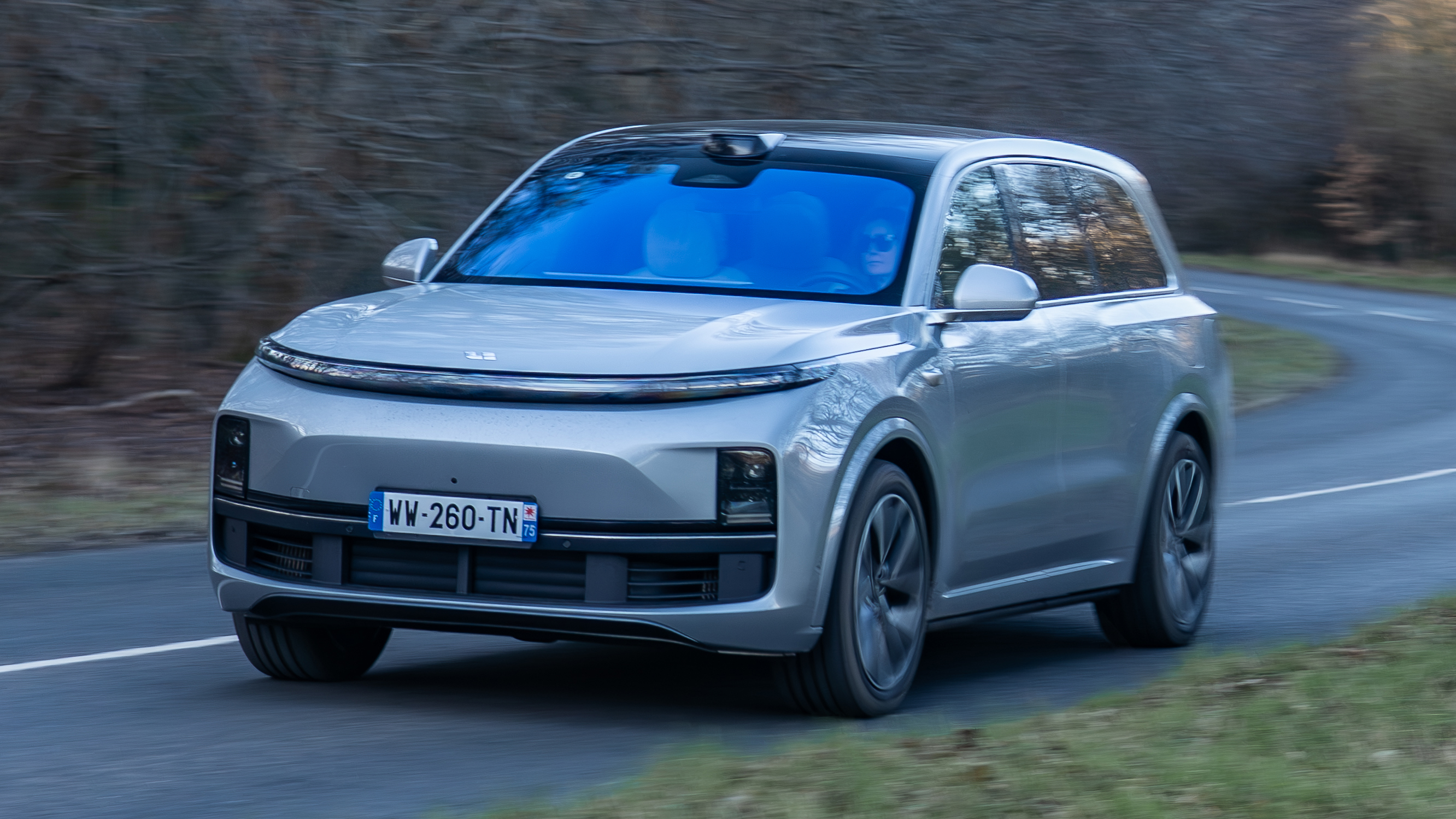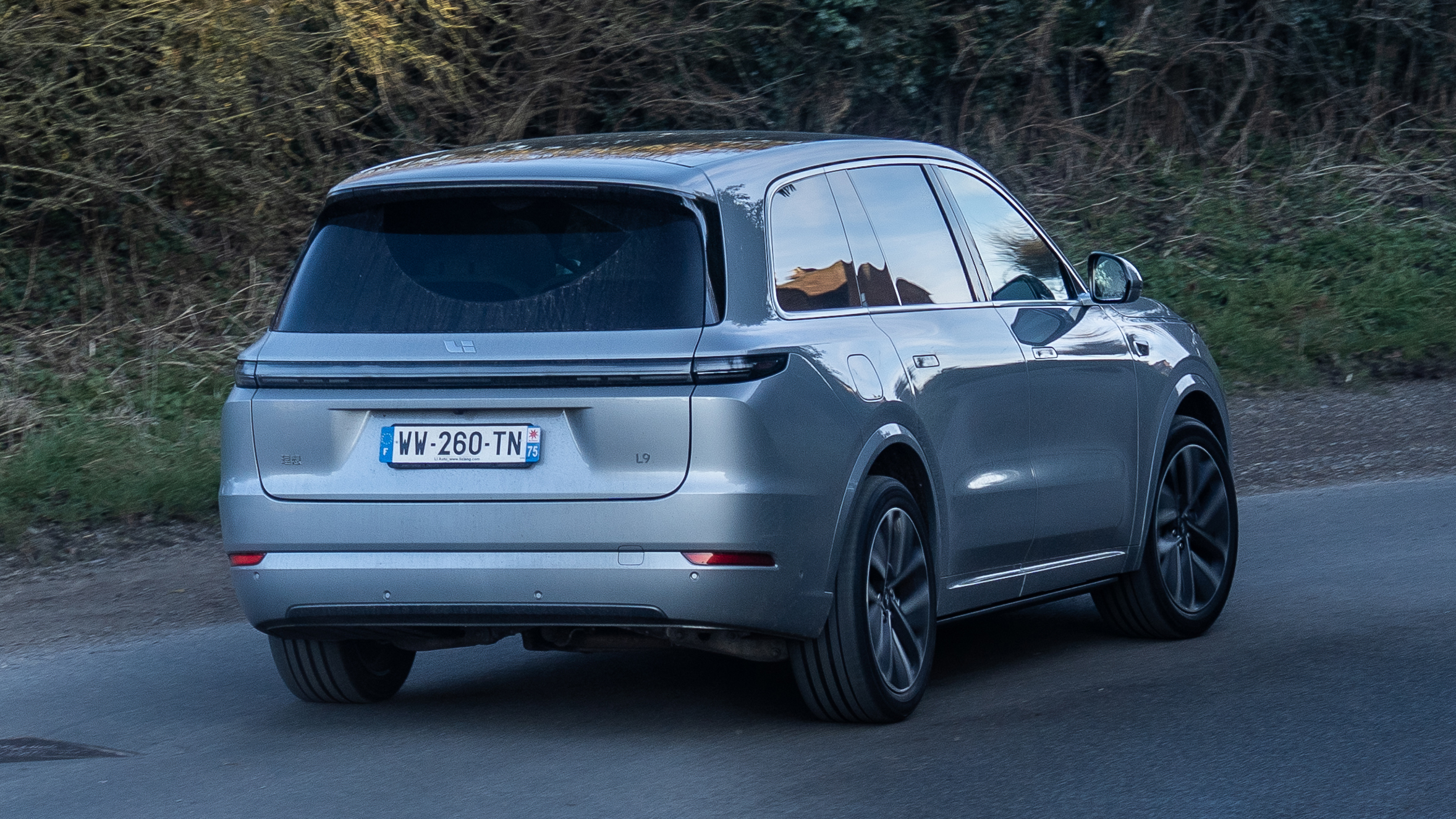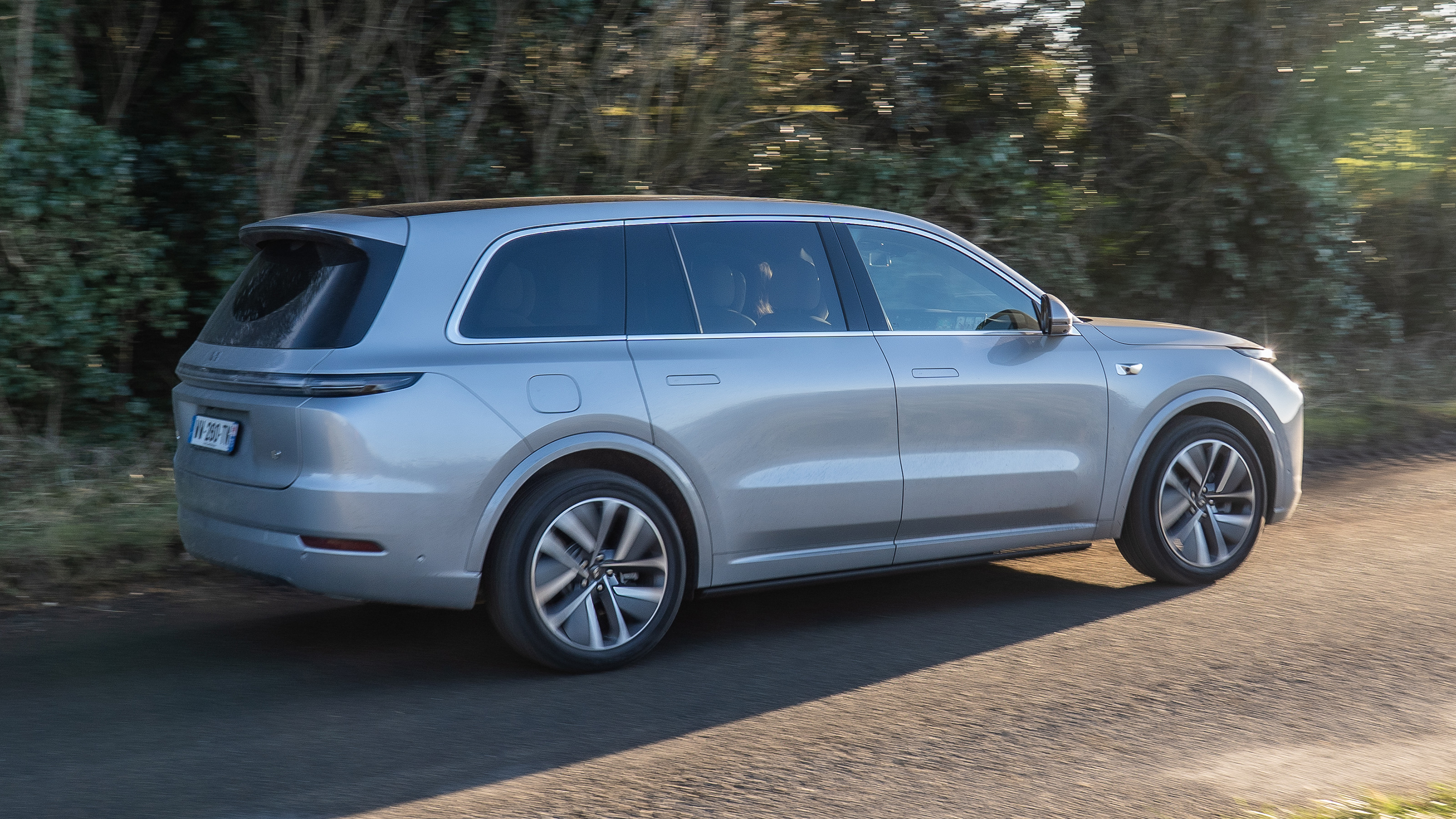Li Auto L9 review: a very convincing luxury SUV (that you can’t buy in the UK)
One of the best-riding SUVs this side of a Rolls-Royce Cullinan. Equipped with some of the most woeful brakes this side of a wooden toboggan. But who cares about that because it also has 11 cameras, lidar, radar, gesture control, soft-close doors, a ceiling cinema screen, La-Z-Boy seats, 440 horsepower, and an 817-mile range.
817 miles? From an electric car? You’re not serious.
I’m semi-serious in the same way that the brakes are semi-able to stop the car. Y’see, it’s a range extender – remember them? – BMW put one in the i3, Audi used it for the RS Q e-tron Dakar, and a few others had a bash, but that was about as far as it went. Shame, as it makes a great deal of sense: drive the wheels electrically, fit a small battery, but charge it up from a compact combustion engine.
But I’m getting ahead of myself. I need to introduce you to the car. It’s the Li L9, a Chinese luxury SUV (you guessed that much, right?) that’s designed to rival the BMW X7 or Volvo EX90. Just one thing: it’s not coming to Europe.
So why are you reviewing it?
Because it’s interesting to see the astonishing progress these firms are making. I often bang on about how Korean firms looked at the Japanese approach and copied it, but in half the time. China has halved it again. Or more. It was only a decade or so back that they were doing knock-off Evoques; now we have sophisticated, full-sized SUVs with cutting-edge technology that genuinely rival anything Korea, Japan, or Europe has to offer.
And they’re doing it slightly differently. Both Japanese and Korean firms depend on global markets – they have to build cars that export around the world. The Chinese market is big enough by itself that export hasn’t been such a priority, so cars are mostly being designed for the domestic market. Until now. Just look at the explosion in Chinese brands arriving in Europe in the last 2-3 years – and the UK isn’t getting the full impact of this yet, as those companies are initially targeting markets that already have good EV take-up, such as Norway and the Netherlands.
Why should I care about the Li L9?
For starters, by the standards of a 5.2-metre long, three-row SUV, it’s a nice piece of design. The work of Ben Baum, who was previously the lead exterior designer at Porsche, it presents a softer face to the world than the imposing Germans.

And that’s how it drives as well. And the thing is, who doesn’t want a giant family SUV that prioritizes comfort and cushioning instead of sportiness? I’ve never understood why Audi, BMW et al. prioritize control – it just makes the cars feel tense and uptight. But here’s an SUV riding on air springs that is genuinely sumptuous and relaxing. A silent cruiser, really well-insulated suspension; put it in R-Comfort mode, and it is positively pillowy.
Following that theme, it has a narcoleptic throttle. In R-Comfort, it refuses to be hurried. Your family will be most impressed by your safe, calm acceleration and wonder where you picked up your chauffeuring skills.
And I suspect there’s a reason for this. Because it would be a lovely thing to be carted around in. The middle-row captain’s chairs tilt back to an angle we shall call ‘dental’, calf and footrests whir into position, you rest your head back on an actual pillow, a cinema screen folds from the ceiling (it’s not quite BMW i7 scale, but it’ll do), and you can gesture to it to make it do things. Well, provided you can speak Chinese.

My Mandarin’s a bit rusty…
Quite. The systems don’t understand English just yet, but the idea is that they combine voice and gesture controls more naturally than we’ve seen so far – for instance, you can point at a window and say ‘open’, or at a child and say ‘quiet’, and it’ll happen. One of those might not be true.
You said the brakes were terrible?
Oh, and they are. Have a look at how small the discs are behind the 22-inch wheels and then step back and consider the mass that must be involved. Let me help you there: I stuck it on a weighbridge: 2,660kg, making it 35kg heavier than the Kia EV9 (which I’ll mention again a bit further on).

They have one reasonable stop in them, but then they wilt like spinach. I know this is a niche complaint, and it’s rare that you need to use the brakes a) hard, let alone b) repeatedly, but a 35-meter stopping distance from 60mph is just acceptable. Each subsequent stop added… three meters. The third stop was worse than the Ineos Grenadier, for heaven’s sake.
Considering how well engineered the L9 feels in other areas, the brakes are a massive oversight: mushy, vague, and – when they get hot – unpredictable and unsettling.
What’s the acceleration like?
Well, it’s curiously similar to the braking in that it does what it claims once and then won’t do it again. Li claims a 0-62mph of 5.3 seconds in Optimum mode. But you can only use it once (I don’t know when it resets). Thereafter, it took 6.0 seconds — which is still plenty quick enough.
And the powertrain is good. It’s a twin motor, one on each axle, obviously, drawing from a 44.5kWh battery that’s topped up as necessary by the 1.5-liter turbo 4-cylinder under the bonnet. It’s all pretty unobtrusive and calm. You feel the vibrations when the engine’s running, but that’s about it, and you’ve got peace of mind because you can just refuel the 55-liter tank instead of charging up.
Does it feel well made?
It does, in the same way that a Lexus or Genesis feels well made. You’re sure it’ll last well, but it’s plasti-tactile; it doesn’t quite have the material satisfaction of a Volvo, let alone a Bentley.
However, if I was Lexus or Genesis – you know, one of those brands that is to luxury what a columned entrance is to a suburban three-bed – I’d be very concerned. I’d never heard of Li Auto before about a month ago; it’s only a decade old, anyway, and yet it clearly builds very convincing cars. If someone had told me this was a next-generation Kia or Hyundai, I’d believe them. It’s quieter, the frame is rigid so it doesn’t shudder like the EV9, it’s less lumpen to drive and less plasticky inside.
But it must be more money?
We can’t really comment on that apart from pointing out it retails for the Sterling equivalent of £49,000 in China. The UK doesn’t currently attract import tariffs on Chinese cars, so if it did come here, it could be a bit of a bargain.
Anything else to report?
I’m assuming they have a different take on these things in China, as it’s more a luxury SUV than a family carrier. Big though the boot is, the rearmost seats don’t fold very flat, and the packaging is decent, but not that great – legroom could be better all around.
Up front, there’s no instrument binnacle. Instead, there’s a head-up display (that includes video images in it, but they’re pretty hopeless) and a slim touchscreen display built into the steering wheel hub. That actually works better than it has any right to. But yeah, gimmick. And there’s no steering feel whatsoever. But you suspected as much already.
It’s a peculiar car in some ways, but also a sophisticated one. And it has a hint of personality. I liked it and think it might actually do reasonably well if it came here – and deserve to. What we’ve seen from China so far is mostly a bunch of identikit mid-sized crossovers, but cars such as this are putting the rest of the world on notice. Apart from the brakes. Back to the drawing board on those.


